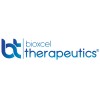
Sedating Effects of Dexmedetomidine Versus Midazolam in Agitated Patients Undergoing Weaning in...
Agitation on Recovery From SedationComparison of sedating effect of dexmedetomidine and midazolam for sedation in icu patients who put on mechanical ventilation and undergoing weaning. Selction of better sedating agent minimises the drug related side effects like respiratory depression but also helps in weaning in shorter time,give hemodynamic stability and reduce morbidity and mortality in icu..

A Study of MP-101 in Dementia-Related Psychosis and/or Agitation and Aggression
PsychosisDementia3 moreA ten-week study to assess MP-101 in Dementia-Related Psychosis and/or Agitation and Aggression

Effectiveness of Ropinirole and Gabapentin for the Treatment of RLS in Patients on Maintenance HD...
Restless Legs SyndromeEnd Stage Renal DiseaseRestless legs syndrome (RLS) is a neurologic disorder characterized by 1) an urge to move the legs, 2) uncomfortable sensations in the legs, 3) symptoms that are often worse the evening or when at rest , and 4) may be temporarily relieved by physical activity. The overall prevalence of RLS in the general population is estimated to be around 10%, however, it is significantly in the end stage kidney disease (ESKD) population is significantly higher (approximately 30%). Studies have shown that RLS has a substantial negative impact on both the physical and the mental health dimensions of quality of life (QOL), such as depression, anxiety, pain, fatigue and sleep disorder. While non-pharmacological treatments should be considered for all patients, pharmacological management of RLS is indicated when the affects patient's sleep or quality of life. Gabapentin and dopamine agonists such as ropinirole are usually the first choices in treating RSL. Although these medications are also used in patients with renal impairment, few studies provide treatment data for the hemodialysis population. Treatment recommendations for this population are largely based on data obtained in the general population. This study aims to evaluate effectiveness of ropinirole and gabapentin for the treatment of restless legs syndrome in patients on maintenance hemodialysis.

An Efficacy, and Safety Study Of BXCL501 For The Treatment Of Agitation Associated With Dementia...
AgitationDementiaA randomized, double-blind, placebo-controlled parallel group 3-arm study assessing efficacy, safety, and tolerability of two doses BXCL501 in male and female geriatric residents (65 years and older) with acute agitation associated with all forms of dementia (i.e., probably Alzheimer's Disease, vascular dementia; mixed; frontotemporal dementia) excluding Parkinson's-Related Dementia and Lewy Body Dementia.

Depakote Extended Release (ER) Versus Seroquel for Agitated Behaviors in Nursing Home Care Unit...
AgitationDementiaThe primary objective of the study is to assess the relative efficacy of Depakote ER and Seroquel for agitated behaviors among veterans with a dementia diagnosis residing in a Department of Veterans Affairs (VA) nursing home care unit (NHCU). The secondary objective of the study is to assess the relative tolerability of Depakote ER and Seroquel in this population. The primary hypothesis is that agitated dementia patients will demonstrate a significantly greater reduction in Cohen-Mansfield Agitation Inventory (CMAI) scores while treated with Depakote ER compared to treatment with Seroquel.

A Study of Rotigotine Patch in Adolescent Subjects With Restless Legs Syndrome of Unknown Cause...
Restless Legs SyndromeThe purpose of this study is to demonstrate the efficacy of rotigotine against placebo in adolescent subjects with idiopathic Restless Legs Syndrome (RLS) over a 12-week maintenance period and to investigate the safety and tolerability of rotigotine in adolescent subjects with idiopathic RLS.

REST Study (CompRESsion Therapy for RLS)
Restless Legs SyndromeThis study in patients with restless leg syndrome (RLS) will evaluate the use of Cirvo™ therapy for the treatment of this disorder when applied to both legs.

Oral Olanzapine Versus Haloperidol or Diazepam
Acute AgitationBehavioural EmergencyThe purpose of this study is to determine whether oral olanzapine is safer (fewer adverse events) and more effective (shorter time to sedation) than conventional haloperidol or diazepam when used in the management of acute agitation in the emergency.

ITI-007 for the Treatment of Agitation in Patients With Dementia, Including Alzheimer's Disease...
Agitation in DementiaIncluding Alzheimer's DiseaseThis is a randomized, double-blind, placebo-controlled study comparing the efficacy and safety of ITI-007 versus placebo administered orally once daily in the treatment of agitation in patients with dementia, including Alzheimer's disease.

Blinded, Randomized Study of Gabapentin (Neurontin®) and Gabapentin Enacarbil (Horizant™) in Restless...
Restless Leg SyndromeThe study will compare the safety, effectiveness and tolerability of gabapentin (Neurontin) versus gabapentin enacarbil (Horizant) as treatment restless leg syndrome.
